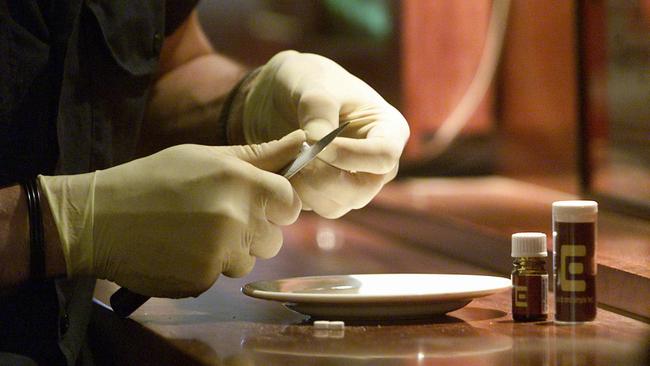Miranda Devine: We can’t heed the siren song of drug liberalisers when it comes to pill testing
Evidence has piled up for years of the harms of illicit drugs, from pill deaths at dance festivals to longitudinal studies establishing the risks of marijuana-induced psychosis, especially in adolescent brains, writes Miranda Devine.
The Ripple Effect
Don't miss out on the headlines from The Ripple Effect. Followed categories will be added to My News.
You may have noticed that whenever drug legalisers try to seize the high moral ground, they accuse their opponents of waging a “culture war”.
They pretend they are on the side of facts, inevitability and optimal health outcomes, while we are mad ideologues.
But this is pure projection. In fact, they are the zealots waging pointless culture wars, because how else do you describe people who refuse to change their minds in the face of overwhelming evidence?
Evidence has piled up for years of the harms of illicit drugs, from pill deaths at dance festivals to longitudinal studies establishing the risks of marijuana-induced psychosis, especially in adolescent brains.
Yet legalisation advocates cling to a utopian vision of a drugs free-for-all where no one suffers ill-effects.
Their arguments don’t make sense.
For starters, the reason most young people don’t use illegal drugs is precisely because they are not legal. Prohibition works. More than 86 percent of high school students have never partaken, according to the National Drug Strategy Household Survey. Further, more than 84 per cent of all Australians had not used drugs in the previous 12 months, if ever.
So why would we contemplate heeding the siren song of drug liberalisers just to make life easier for a small minority of law-breakers.
It is obvious that legalising a drug like, say, marijuana will create more marijuana users — because there will no longer be a disincentive for law-abiding people.
Therefore, logically, there will be more mental health problems among young people. It is reckless stupidity to advocate legalising substances guaranteed to exacerbate the existing crisis.
In any case, we already have a legal mind-altering drug embedded in our social fabric, for better or worse, and the ill-effects of alcohol are more than enough. Why add more harmful substances to the mix, to interact in unpredictable ways, creating more mayhem for emergency workers?

Of course, policing drugs is an expense, but there is a cost in every law we enforce.
That doesn’t mean that we stop enforcing the law.
The benefits of drug law enforcement was evident during John Howard’s successful (but sadly discontinued) Tough on Drugs program, which combined stronger policing with better rehabilitation options for addicts.
Drug use fell for the first time in three decades and fewer young people experimented.
We never said drug use had been eradicated. That’s just another lie of drug liberalisers, who created the straw man of a failed “war on drugs”.
Like all illegal activity, drug use always will exist but, if we don’t lose our will, we can keep it confined to a fringe group of experimenters, law-breakers and losers.
Originally published as Miranda Devine: We can’t heed the siren song of drug liberalisers when it comes to pill testing
